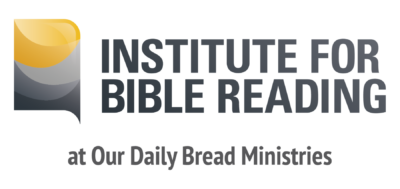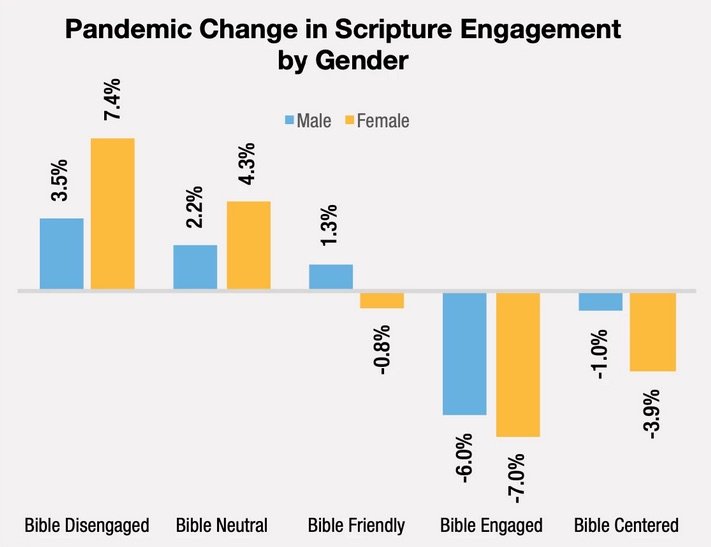The contention of this series of articles is that the Bible is set in the land of wild things. That is, the Bible is more fantastical—beautiful, dangerous, and strange—than we give it credit for. What we incorrectly call the natural and the supernatural, as if they are distinct and isolated realms, are actually part of a single, fascinating, and intertwined world. In the Bible, heaven and earth constantly interact and are alive with all kinds of creatures, forces, and powers—both seen and unseen.
What are these powers? What do they do in the world? How do they operate? How do they relate to God, to humans, and to the story of rescue and redemption the Bible tells? It’s past time we re-engage the Bible’s overlooked story of the powers. The six articles cover the following major biblical topics:
- Ladies and Gentlemen, Meet the Powers
- The World-Rulers of this Darkness
- The Satan and The Law That Enslaves
- The Bondage of Creation
- Jesus’ Victory Over the Powers
- The Powers and the People of Jesus Today
* I am especially indebted to G. B. Caird’s small book Principalities and Powers for the main outline of this series (based on his Chancellor’s Lectures in 1954 at Queen’s University).
The Satan and The Law That Enslaves
We’ve already seen that the Bible testifies to the enslaving rule of the world by spiritual powers who’ve turned false. Created by God and meant to serve his good purposes, they’ve instead become potent agents for evil. The First Testament clearly correlates the rule of the powers to the waywardness of the nations.
But what about Israel? Are God’s people exempt from the influence and misdirected rule of the powers that is so devastating for the Gentile nations? What does the story say?
To answer these questions we must first step back and take a brief look at one of the powers in particular: Ha satan, the Great Accuser, our legal adversary whose title eventually became his name.
He is portrayed in the opening of the book of Job as having full access to the heavenly council. He appears to be one of the “gods” or “sons of Elohim,” reporting on how God’s creatures are doing vis-á-vis God’s law.
But as always in the Bible, the story progresses and we learn more. The Accuser is not neutral. He takes pleasure in hauling sinners into the divine court, yet that is not enough for him.
Satan moves on from the role of prosecutor to that of tempter. He actively incites people toward sin which he can then use as charges against them. The author of Chronicles reports that it is Satan who prompts King David to take a census to measure the strength of his army. Satan aggressively confronts and tempts Jesus right at the launch of his kingdom ministry, attempting to derail it.
The growth of Satan’s job description continues. In the gospels we hear Jesus saying that a woman who was crippled had in fact been bound by Satan for eighteen years. Paul speaks of handing a man over to Satan “for the destruction of his flesh.” The book of Hebrews says that it is the Great Accuser who holds the power of death. And Revelation comes right out and names him “the Destroyer.” Tempting and accusing is not sufficient for him. Satan also seeks to carry out the punishment on the guilty.
Entrap. Bring charges. Destroy.
Sounds horrible, and it is, but what does it have to do with the story of Israel and the powers?
Slaves to the Law
The relationship to Israel’s story is one of a parallel development, and the connection in the first place lies with the angels and the role of Torah. The Torah originates with God, and Paul strongly affirms that it is holy, righteous, and good. The problem is not with the law itself.
According to the New Testament (though we don’t hear about it in the First Testament), it was the angels who mediated the giving of the law to Israel. Galatians and Hebrews both affirm that the law was put into effect through angels. They apparently were made to function as intermediaries and guardians of Torah.
Strangely, under this guardianship the law ends up being used in a way that doesn’t curb sin but rather aggravates it. Torah ends up stimulating the very thing it prohibits. We see the Apostle Paul wrestling with this paradox in his letters to the Romans and the Galatians.* Paul had been a Pharisee, zealous in his enforcement of Torah and convinced that a stricter adherence to it was the path to restoration for Israel.
But it didn’t happen.
Instead, Paul says that Torah was increasing the amount of pain and brokenness in the world. The law actually gives more power to the sin in us, so that when sin sees the prohibition, it jumps at the chance to do wrong. The law ends up tempting people to sin, then it empowers sin, and finally accuses and condemns them when they do sin.
Sound familiar? The law in Israel has become like ha satan, humanity’s great accuser before God. The law does not function with the power to heal or restore, only to condemn. Israel’s Torah, though given by God, is transformed into a destructive force, all because of the power of sin in us. The situation drives Paul to cry out in desperation: Who can save us from these bodies of death?
This is why Paul can say that Israel under Torah is actually in slavery to the elemental spiritual forces of the world. He ends up presenting the law, sin, and death as a trio of closely aligned powers working to oppose God’s saving purposes. This triumvirate of destruction has come to hold Israel in bondage.
We learn that even something holy and good, originating from God, can become a force for evil when isolated from God’s larger intentions for the life of his creation. If this can happen to Torah, it can happen to anything that we wrongly absolutize—nation, race, family, an economic system, or any other gift we find or fashion within the good creation.
If this can happen to Torah, it can happen to anything that we wrongly absolutize
Paul writes that Torah was always meant to be partial and temporary, governing the people of Israel like an underage child. But under the influence of the powers, Israel elevated it to something supreme and eternal.
A New Way
When we come to the gospel accounts of the ministry of Jesus this is exactly how we see the law functioning, which is why Jesus opposes the Pharisees and teachers of the law. The law is operating in first-century Israel in a way that works against human flourishing. It divides, intimidates, condemns, and excludes people. Jesus is not working against Torah itself, but the way Torah is being used to interfere with God’s gracious and restorative purposes. Israel’s leaders are using the law like a weapon.
Jesus comes announcing the real intention of Israel’s God: For God did not send his Son into the world to condemn the world, but to save the world through him.
So here we are: the wild things—the powers who have overtaken the world—have led all of humanity, Jew and Gentile alike, into utter disaster. Both groups have come under the sway of fallen angelic guardians, and in both cases we find humanity in rebellion to the ways of the Creator. The nations worship idols of many types, ancient and modern. They are in league with sin and death. Israel has misused God’s gift of the law and so ends up in service to the same ruinous forces.
So God sends his Son to bring the divine reign and reestablish the real purpose for creation.
Then we watch in horror as the foremost world empire, along with God’s own people—Rome and Israel—conspire together in blindness and rebellion to crucify the Son of Man.
Who killed Jesus? Technically it was Roman soldiers, but Herod, Caiaphas and Pilate were directing this show. Paul tells us, however, that more deeply still it was the spiritual rulers of this age who made sure Jesus was executed. We can see here, as clearly as anywhere, how human authorities and the spiritual forces of evil can both be working at the same time and in the same events.
God sent Israel as his agent to bring the world from curse to blessing. God then sent his own Son to bring Israel back to its founding purpose. So what happens when the powers prevail upon both Israel and the nations to fight against God’s ultimate mission in the Messiah?
The secret wisdom of God working in Christ surprises everyone involved.
But before we unpack this decisive move of God within the story, we must turn to one more chapter on the devastating work of the powers. We’re not yet done unveiling all that the powers have done, for the damage goes deeper still.
Part 4: The Bondage of Creation >>>
*For Paul and his not-uncomplicated view of Torah, see especially Romans 2–7 and Galatians 3–4.



